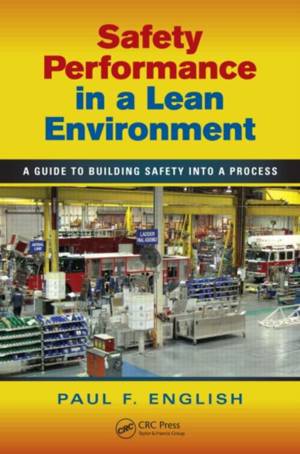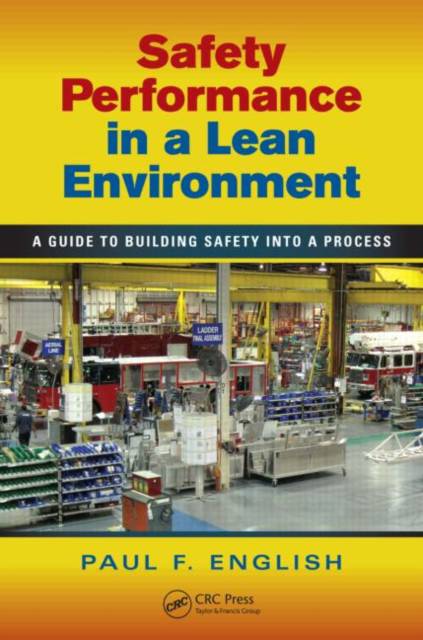
- Retrait gratuit dans votre magasin Club
- 7.000.000 titres dans notre catalogue
- Payer en toute sécurité
- Toujours un magasin près de chez vous
- Retrait gratuit dans votre magasin Club
- 7.000.000 titres dans notre catalogue
- Payer en toute sécurité
- Toujours un magasin près de chez vous
Description
As changing customer demands and shifting world markets continue to put a strain on businesses in all sectors, your business needs every advantage to stay competitive. Many people may think of Lean processes as suitable only for the manufacturing floor, but that couldn't be further from the truth. Safety Performance in a Lean Environment: A Guide to Building Safety into a Process demonstrates how Lean tools can eliminate waste in your safety program, making it an important piece not only in keeping your organization safe but also in keeping it globally competitive.
Written by safety pro Paul F. English, this book explores tools such as Lean manufacturing, DMAIC processes, and Kepner-Trego problem solving and how to use them to increase efficiency and eliminate waste in safety programs. He goes on to discuss value-based management, a technique identified as a leading business model for any organization wanting to catch "The Toyota Way." These processes help you build, incorporate, and sustain a safety program and understand how to get and maintain a foothold for the safety program in times of change.
Here's what you get:
- Real safety solutions for a Lean environment
- Methods for setting up standard work for EHS professionals
- How-tos for JSA and pre-task analysis to help develop standardized work
- Tips and tricks that everyone can use to jump start a stalled safety program
No book currently on the market discusses Lean manufacturing or Six Sigma processes and links them to the occupational safety or environmental science. Yet these are the areas where the need for Lean processes is becoming acute. English demonstrates how to anticipate paradigm shifts in management models and how environmental health and safety fits into the model. He defines what adds value to the safety and manufacturing process as well as to the customer. These changes may include a change in daily, weekly or monthly metrics that can help or harm a safety program. Defining what adds value to the safety and manufacturing process and the customer helps you understand how to build safety into a process, creating a strong safety program.
Spécifications
Parties prenantes
- Auteur(s) :
- Editeur:
Contenu
- Nombre de pages :
- 168
- Langue:
- Anglais
- Collection :
Caractéristiques
- EAN:
- 9781439821121
- Date de parution :
- 21-11-11
- Format:
- Livre relié
- Format numérique:
- Genaaid
- Dimensions :
- 163 mm x 236 mm
- Poids :
- 399 g







